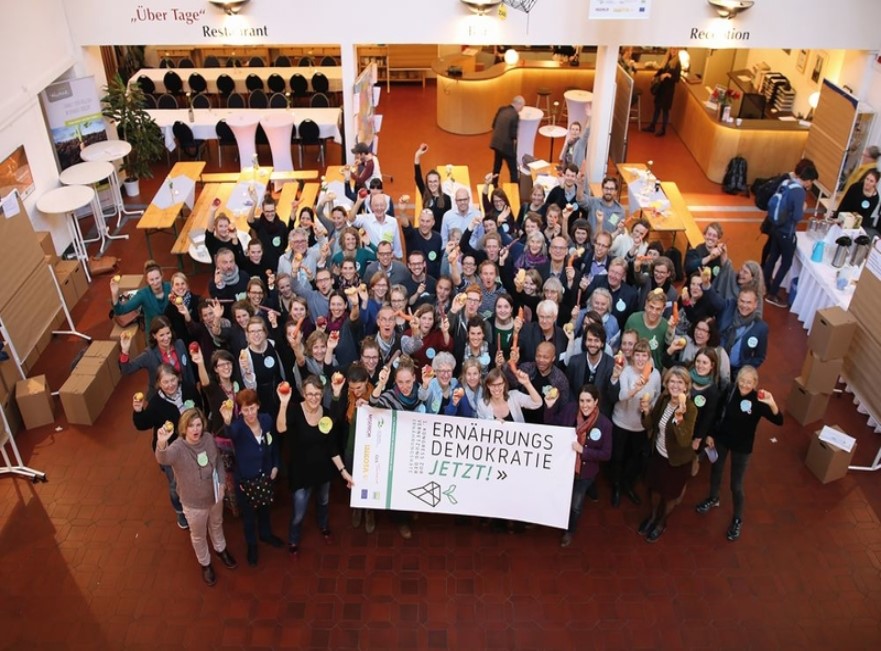The pace of urbanisation is increasing globally, together with the ‘supermarketisation’ of the urban population. At an expert discussion at Deutsche Gesellschaft für Internationale Zusammenarbeit (GIZ), specialists presented the network of food policy councils as a way of securing the right to healthy and sustainable food in cities.
Most people now live in cities – the urban population will triple by 2050. This poses a problem: City dwellers on all continents are increasingly suffering from excess weight, among other reasons because of the increase in consumption of processed industrial foods. ‘Supermarketisation’ is proceeding apace. How can the right to healthy, sustainably produced food be enforced for city dwellers? How can farmers in areas around urban centres contribute to and benefit from this?
Food policy councils have been tackling issues like these for some time. A growing force in the English-speaking world for over 35 years, more than 50 food policy councils have also been formed in the German speaking world in the past five years.
Food policy council network coordinator Anna Wissmann reported on these at the expert discussion ‘Food policy councils – German experience as inspiration for development cooperation’ at the Deutsche Gesellschaft für Internationale Zusammenarbeit (GIZ) in Bonn, Germany, on 1st October 2019.
The networks are multi-stakeholder platforms: Civil society organisations work with politicians, administrators and businesses (e.g. farming, the craft-based food industry, catering) to develop solutions for urban nutritional issues. Food policy councils create the possibility of direct marketing of farm products from the region, hold festivals and trade fairs or make possible urban gardens.
A keyword here is food autonomy. ‘We want food democracy,’ Wissmann explained, ‘changing the perspective from the point of view of a consumer to that of a citizen is decisive – this creates responsibility and options for shaping events.’
Regional initiatives for the entire value chain
The organisation Regionalwert AG Rheinland collects money from citizens through shares, and invests in organic establishments, supports the move from conventional farming to organic farming, and creates structures for joint use (e.g. mobile slaughterhouses, warehouses).
Stefan Gothe, chairman of the supervisory board, presented the concept of value spaces in Bonn. If we regard the region as a space in which the aim is to increase added value, the focus inevitably falls on farms which act sustainably in social, ecological and economic terms – for example, through soil-conserving cultivation methods, soya-free animal husbandry, harvesting without seasonal workers. For farms in the area around cities to survive, direct relationships need to be established between farmers and urban customers, Gothe explained in the expert discussion. Food policy councils made an important contribution to this.
The discussion was organised by the GIZ ‘Sustainable rural development’ sector project.
Author: Dorothea Hohengarten
